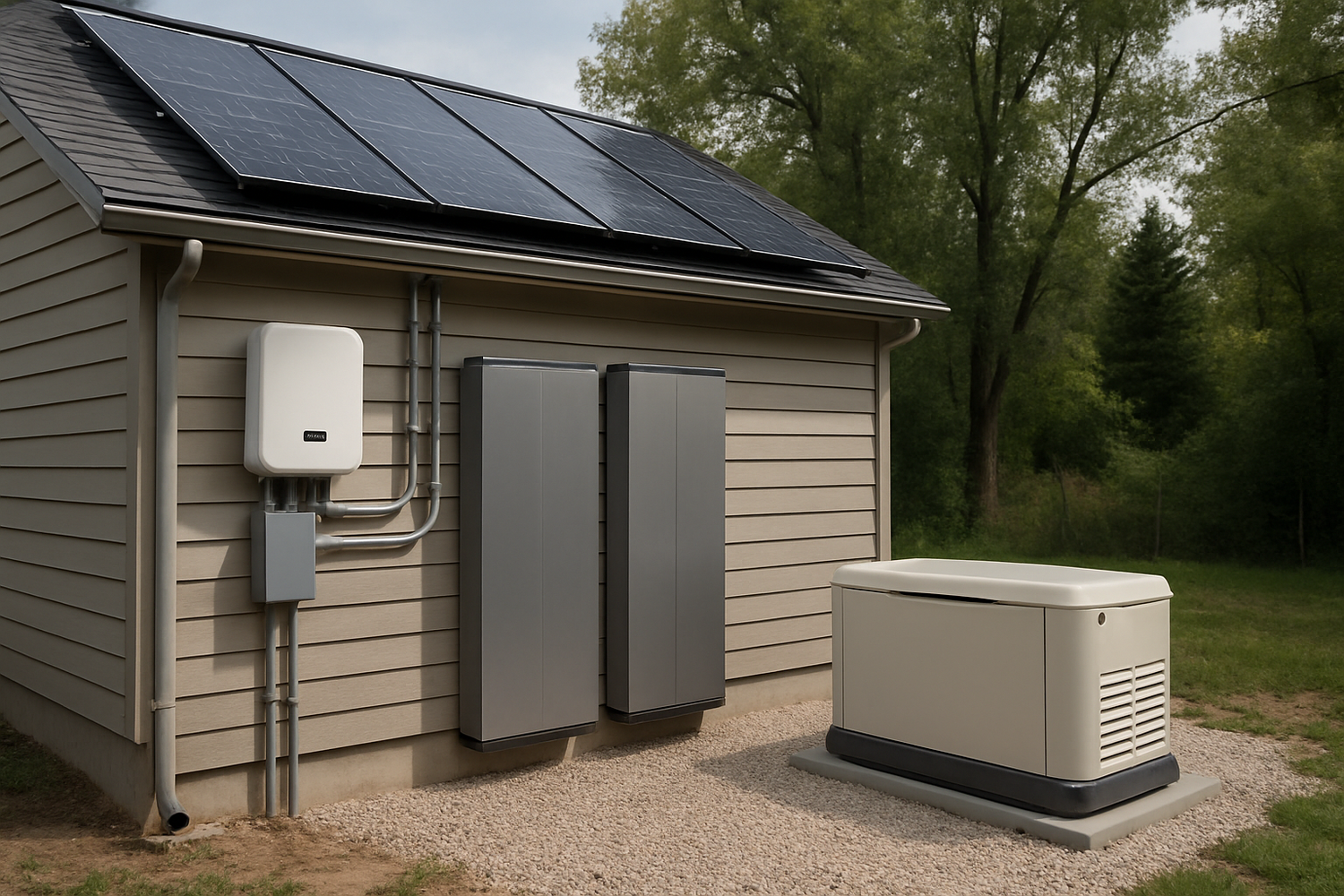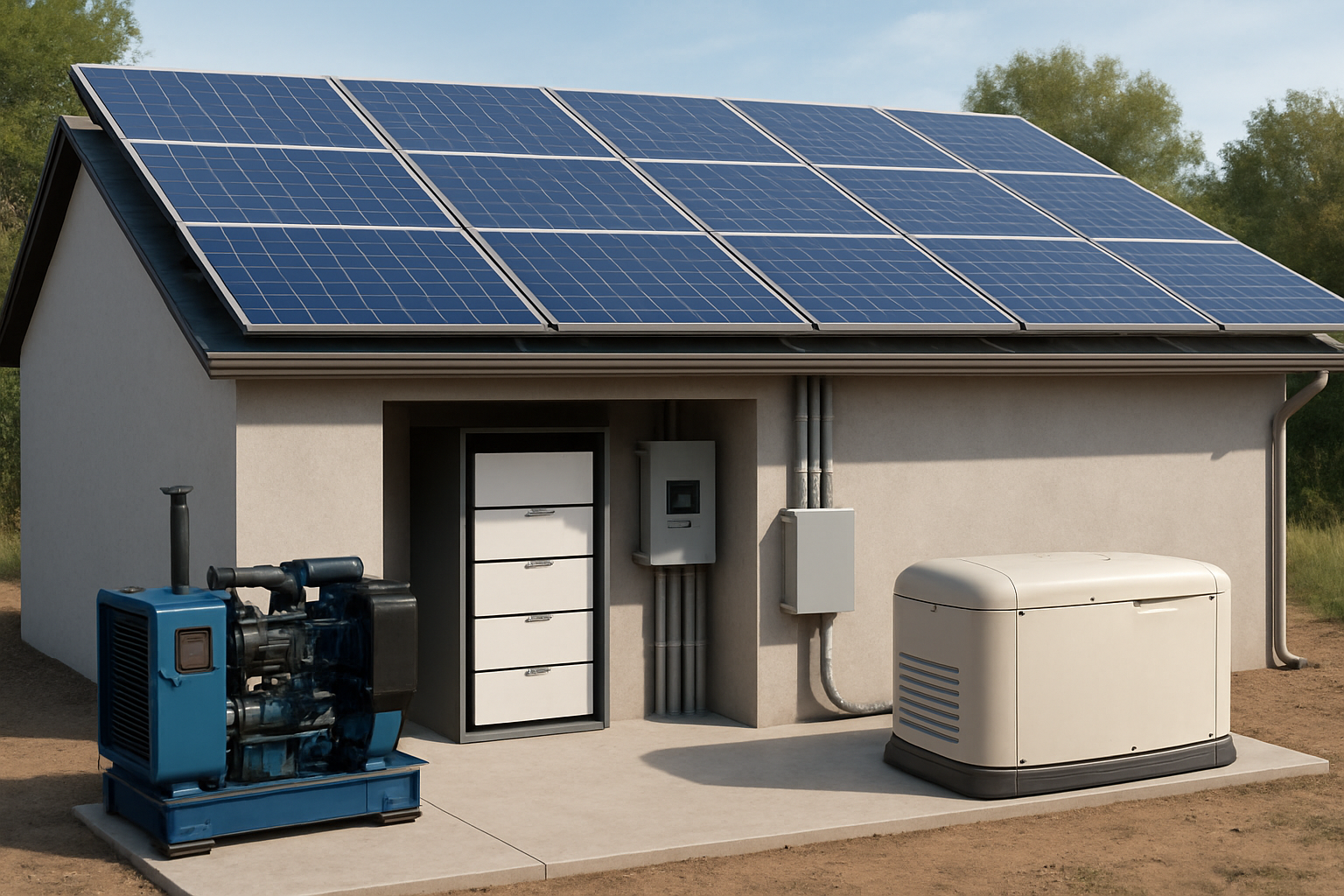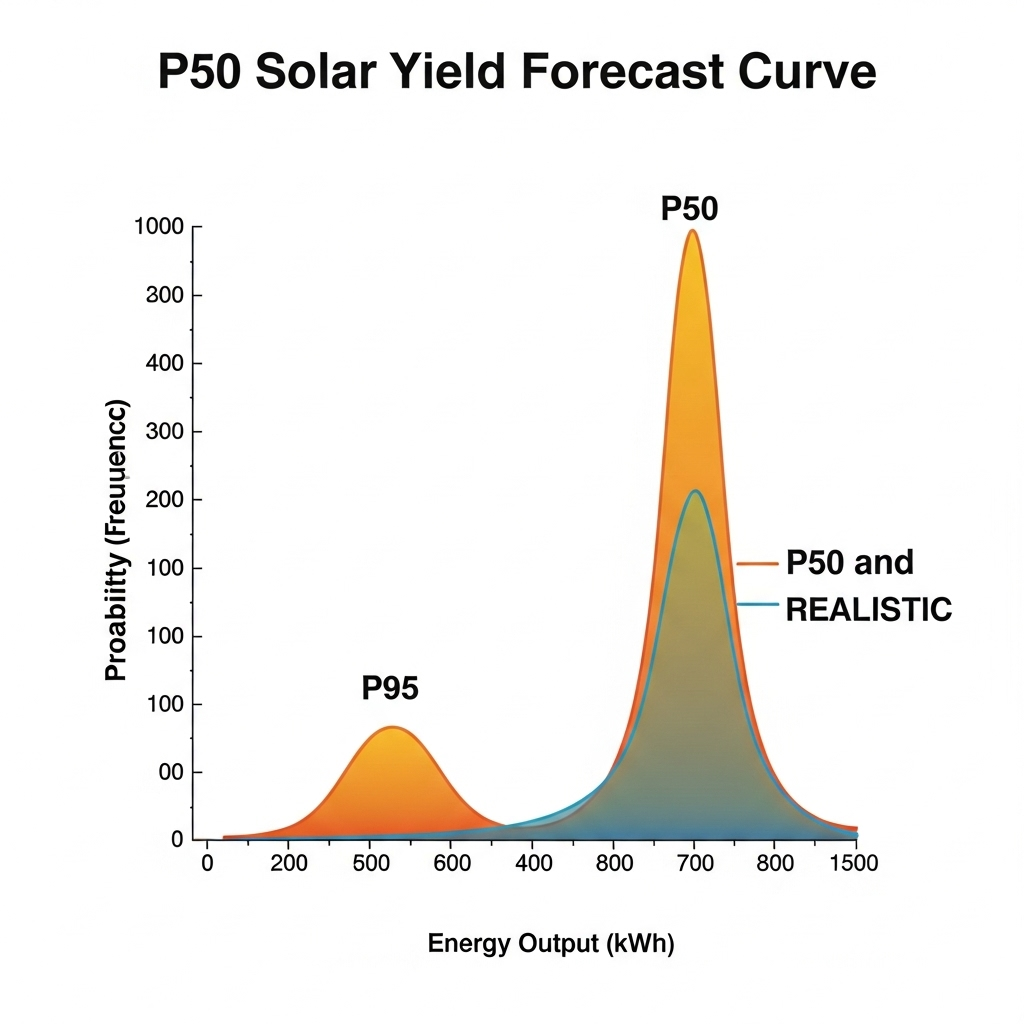The rise of advanced battery technology has sparked intense debate about whether generators still have a place in off-grid systems. While lithium batteries offer impressive capabilities, declaring generators obsolete would be premature. The reality is more nuanced: each technology serves distinct purposes, and the most effective approach often combines both.
Modern off-grid systems face increasing demands for reliability, efficiency, and cost-effectiveness. Battery technology has advanced rapidly, but generators continue to provide unique advantages that batteries cannot fully replicate. Understanding when and how to use each technology determines the success of your off-grid installation.
Battery Technology Capabilities and Limitations
Lithium iron phosphate (LiFePO4) batteries have transformed off-grid power storage. These systems deliver instant power, operate silently, and require minimal maintenance. A typical residential battery bank can provide 10-20 kWh of storage, sufficient for most daily energy needs.
Battery advantages include zero emissions during operation, precise power control, and seamless integration with solar panels. Modern battery management systems optimize charging cycles and prevent damage from overcharging or deep discharge. The technology excels at handling frequent cycling and provides consistent voltage output.
However, batteries face significant limitations. Energy density constraints mean larger installations require substantial space and investment. Cold weather reduces capacity by 20-40%, creating seasonal reliability challenges. Battery replacement costs every 10-15 years represent a major long-term expense.
Cost Analysis of Battery-Only Systems
| System Size | Initial Cost | Annual Maintenance | Replacement Cost (15 years) |
|---|---|---|---|
| 10 kWh | $8,000-12,000 | $200-400 | $6,000-9,000 |
| 20 kWh | $15,000-22,000 | $400-600 | $12,000-18,000 |
| 40 kWh | $28,000-40,000 | $600-1,000 | $22,000-32,000 |
Generator Strengths in Off-Grid Applications
Generators provide on-demand power generation that batteries cannot match. A 10 kW diesel generator can run continuously for days, limited only by fuel supply. This capability proves invaluable during extended periods of low solar production or high energy demand.
Fuel-based generators offer superior energy density. A single tank of diesel contains more energy than most residential battery banks. Generators also handle surge loads effectively, starting motors and powering tools that might overwhelm battery inverters.
Maintenance requirements, while regular, are predictable and manageable. Generator servicing costs typically range from $300-800 annually, depending on runtime hours. Modern generators feature automatic start systems and remote monitoring capabilities that enhance reliability.
Generator Performance Characteristics
Diesel generators achieve 30-35% fuel efficiency, converting approximately 3.5-4 gallons of fuel per day for a 5 kW continuous load. Propane generators offer cleaner combustion but consume 15-20% more fuel equivalent. Natural gas provides the cleanest operation where pipeline connections exist.
Generator lifespan typically reaches 10,000-20,000 hours with proper maintenance. This translates to 15-25 years of service for systems running 2-4 hours daily. Quality units maintain consistent power output throughout their operational life.
Hybrid Systems: The Optimal Solution
Combining batteries with generators creates synergistic benefits that exceed either technology alone. Batteries handle daily cycling and provide silent operation during peak hours. Generators serve as backup power and battery charging sources during extended cloudy periods.
This hybrid approach optimizes fuel consumption by running generators at efficient load levels. Instead of cycling on and off throughout the day, generators operate for concentrated periods to bulk charge batteries. This strategy reduces fuel consumption by 40-60% compared to generator-only systems.
Smart controllers coordinate battery and generator operation automatically. These systems monitor battery state of charge, weather forecasts, and load patterns to optimize power generation timing. Advanced controllers can schedule generator runtime during off-peak hours to minimize noise impact.
Economic Benefits of Hybrid Systems
Hybrid systems reduce overall system costs compared to oversized battery-only installations. A 10 kWh battery paired with a 5 kW generator often costs less than a 25 kWh battery system while providing superior reliability. The generator extends battery life by reducing deep discharge cycles.
Fuel costs in hybrid systems typically range from $500-1,500 annually, depending on usage patterns and local fuel prices. This compares favorably to the amortized replacement cost of larger battery banks. Generator maintenance adds $300-600 annually but provides insurance against battery failure.
Application-Specific Considerations
Different off-grid applications favor different approaches. Residential cabins with weekend use may operate effectively with battery-only systems. Full-time residences benefit from hybrid configurations that ensure year-round reliability.
Commercial and industrial applications almost always require generator backup. Critical loads such as refrigeration, telecommunications, and medical equipment cannot tolerate power interruptions. Generators provide the ultimate backup when batteries reach capacity limits.
Climate Impact on Technology Choice
Northern climates present challenges for battery-only systems. Sub-zero temperatures reduce battery capacity and efficiency significantly. Generators provide reliable cold-weather operation and can warm battery enclosures to maintain performance.
Tropical climates favor battery systems due to consistent solar production and moderate temperatures. However, hurricane and storm seasons may require generator backup for extended grid outages. Fuel storage becomes critical in these scenarios.
Future Technology Trends
Battery technology continues advancing rapidly. Solid-state batteries promise higher energy density and improved cold-weather performance. However, these technologies remain expensive and unproven in large-scale applications.
Generator efficiency improvements focus on variable speed operation and hybrid integration. New controllers optimize generator runtime based on renewable energy forecasts and load predictions. These advances further improve fuel efficiency and reduce emissions.
Hydrogen fuel cells represent an emerging alternative that combines instant response with long-duration storage. However, hydrogen infrastructure limitations and high costs currently restrict adoption to specialized applications.
Making the Right Choice for Your System
The decision between batteries, generators, or hybrid systems depends on specific requirements and constraints. Battery-only systems work well for light loads with predictable usage patterns. Generator-only systems suit applications with high intermittent loads and abundant fuel access.
Hybrid systems provide the best balance for most off-grid applications. They combine the convenience of batteries with the reliability of generators. This approach minimizes both initial costs and long-term operating expenses while maximizing system reliability.
Consider your energy usage patterns, local climate conditions, fuel availability, and maintenance capabilities when designing your system. Professional system sizing ensures optimal component selection and integration for your specific needs.
The future of off-grid power lies not in choosing between batteries and generators, but in intelligently combining both technologies. This hybrid approach delivers reliable, efficient, and cost-effective power solutions that neither technology can achieve alone.





Leave a comment
All comments are moderated before being published.
This site is protected by hCaptcha and the hCaptcha Privacy Policy and Terms of Service apply.